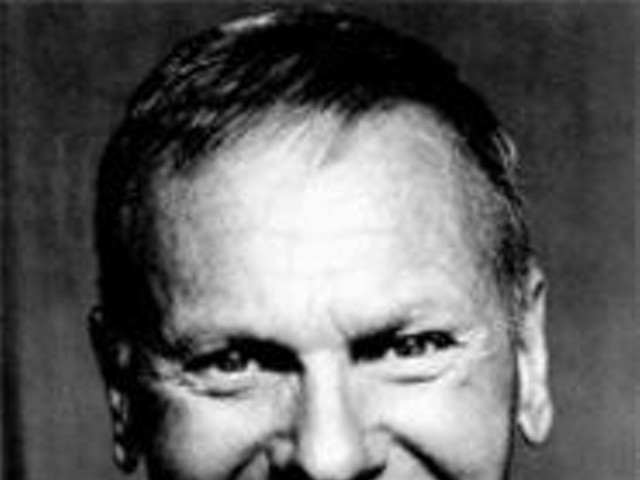It's not an issue of how good or bad the production is; it's a matter of right or wrong. As staged here, this out-of-focus movie spoof is so wrong-headed that considerable rethinking is in order if the show is to have a continued life. What must, in the abstract, have seemed like a clever notion -- yet another spoof of all the movies we hold so dear -- never evolves into a concept. The evening has no point of view. It careens from sketch to sketch, from moment to moment, without any sense of build. The intermission arrives almost as a jolt. Why now? The only answer seems to be that 45 minutes have elapsed, so it's time to take a break.
Those familiar with the RSC's popular The Compleat Wks of Wllm Shkspr (abridged) will recognize the trademark ploys: puns aplenty, scenes that play out in slow motion and, of course, any excuse to dress a man in drag. But this time the antics elicit little payoff. Why doesn't the show work? Perhaps because co-authors Reed Martin and Austin Tichenor (who, along with Dominic Conti, round out the frenetic three-man cast) seem to have forgotten the underlying tenet that made the Reduced Shakespeare Company a success to begin with.
Both Wllm Shkspr (abridged) and The Bible: The Complete Word of God (abridged) are predicated on the premise that most audience members aren't all that familiar with the material being spoofed. How many of us have actually read the complete canon of Shakespeare or trudged through the Bible in its entirety? How much easier it is for the RSC to transform Titus Andronicus into a cooking show when most of the audience isn't conversant with Titus anyway.
But film is the most influential cultural innovation of the twentieth century. We live and breathe movies; we already know the celebrated lines from The Wizard of Oz and Star Wars. And we've grown up with inspired movie spoofs. From Sid Caesar to Carol Burnett, TV variety stars made hilarious fodder of Hollywood films. Burnett got her all-time longest laugh in a take-off on Gone With the Wind. Now that the variety shows are history, animated shows like The Simpsons and South Park have picked up the slack. So Completely Hollywood is not the only game in town; if you want to spoof the movies, you need to bring something fresh to the table.
The RSC's idea of freshness amounts to little more than an extended Jeopardy! riff. Answer: Snow White and the Seven Samurai. Question: What is a merger between Walt Disney and Akira Kurosawa? A few such word games can be amusing, but in providing the show's principal source of laughs, these conjunctions grow tiresome fast and are no substitute for wit. In the same vein, to retool Charlie's Angels as a Jane Austen tome is a novel idea, but once we've seen three men in dresses (again), the sketch goes nowhere. The evening holds dear to the conviction that if the actors move quickly enough -- and then (in the slow-motion sequences) slowly enough -- no one will care about what they're saying. Movies, after all, are more visual than verbal. But theater audiences do listen, and they know the difference between a pithy joke and a feeble one-liner.
By evening's end a viewer has the right to ask the paramount questions that the RSC authors have not asked -- or at least have not yet answered: What precisely is being lampooned here -- specific films, an industry, a culture? And what is the spine of the show? The Bible has more than its share of sophomoric humor, but at least by the end the viewer is reminded that there is a purpose to man's existence. Here there is no sense of discovery about anything. You don't regard movies any differently at the end of Completely Hollywood than you did at the outset.
If this piece is really going to premiere next year, the RSC has a lot of work ahead. First and foremost these guys have to settle on a reason for the show's being. Because let's face it: When the largest laugh in a Hollywood revue is a joke about FEMA, something is very much out of alignment.





